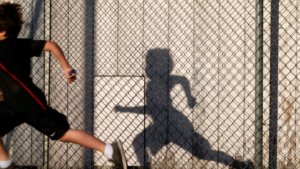
How commonly do drinkers suffer blackouts?
It’s something many people have experienced at least once in their lives – a night of heavy drinking followed by a day of missing memories. A blackout.
The amnesia caused by excessive alcohol consumption has become a topic of discussion in the wake of sexual assault allegations against US Supreme Court nominee Brett Kavanaugh.
One of the accusers says Judge Kavanaugh tried to force himself on her at a party when he was drunk, 36 years ago. A second woman says he exposed himself to her during a college drinking game.
Mr Kavanaugh strongly denies the accusations, and some have suggested that he could have suffered a blackout from alcohol, which he also rejects.
So what’s an alcohol-induced blackout?
It’s when our brain fails to record memories of events that take place while we’re drinking.
That happens because circuits in the brain area that plays a key role in consolidating memories of our day-to-day lives, the hippocampus, are shut down by alcohol, according to the National Institute on Alcohol Abuse and Alcoholism(NIAAA) in the US.
This results in gaps in the record-keeping system.
There are two types of blackouts:
- The most common, called fragmentary blackout, is when an individual has pieces of memories separated by missing details. So you may remember having a few drinks, for example, but not how or who paid for them. Experts say that focusing on the memories often helps people recall some of the missing parts
- A complete blackout, or “en bloc”, is a severe amnesia for several hours. Usually there is no way to remember events because the information was never stored in the brain
How common is it?
Fragmentary blackouts are very common, studies say, especially among young drinkers.
“Anywhere from 30% to 50% of young adults who drink do report some experience with an alcohol-related blackout,” says Dr Kate Carey, professor of behavioural and social sciences at Brown University in Providence, Rhode Island.
They’re triggered when an individual’s blood alcohol concentration (BAC) rises quickly and reaches a high level. This can happen as a result of consuming large amounts of alcohol in a short time, doing shots or drinking on an empty stomach.
A blackout starts when a person’s BAC is around 0.2, experts say. For comparison, in the US, it’s illegal to drive with a BAC of 0.08. (Limits are different in the UK.)
Are there people who are more vulnerable?
Studies suggest that blackouts are more common in individuals with lower body weight and in women. That’s because women’s blood alcohol level rises faster after each drink as a result of having less water in the body.
A genetic component could also explain why some people seem to be more susceptible to blackouts than others.
Some experts also say people who smoke or use other recreational drugs while drinking are more likely to blackout from alcohol.
Are there any visible signs?
Not necessarily, says Dr Carey.
As the short-term functions are quite robust against the impact of alcohol intoxication, someone may be awake and functional, even citing things that have taken place before the blackout, she adds. But they just won’t remember it.
Some people, however, may show some signs including distraction or the inability to continue a conversation, for example.
What are the consequences?
According to the American Addiction Centers, individuals can choose to participate in risky behaviours that they may not perform when sober, due to impaired decision-making.
That could be driving a car, getting into a fight or committing – or being the victim of – a sexual assault or other crime, says the NIAA.
Apart from memory loss, constant blackouts may suggest a drinking disorder, which can lead to long-term health issues such as liver problems.
Is it the same as passing out?
No. Passing out is when someone is asleep or unconscious from excessive drinking.
Source: https://www.bbc.com/news/world-us-canada-45711410
Photo: Getty Images








